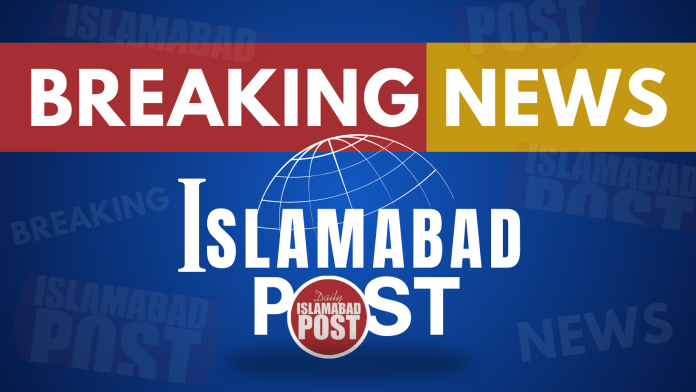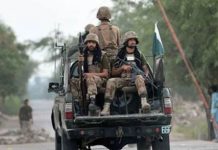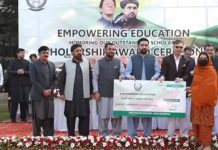PHMA, PRGMEA urge PM to block spinners’ push for tariffs, restore original scheme
dna
Lahore: The value-added textile sector has once again raised a unified voice to safeguard the backbone of Pakistan’s export economy—the small and medium enterprises (SMEs) of the apparel industry.
In a joint press conference held at PHMA Lahore office on Tuesday, the Pakistan Hosiery Manufacturers and Exporters Association (PHMA) and the Pakistan Readymade Garments Manufacturers and Exporters Association (PRGMEA) demanded urgent action to restore the Export Facilitation Scheme (EFS) in its original spirit.
The leadership jointly called on Prime Minister Shehbaz Sharif to intervene and halt policy shifts that threaten to dismantle the EFS. They warned that ongoing bureaucratic distortions—compounded by lobbying from the spinning sector for new tariffs—are pushing the SME-based apparel export industry toward serious crisis.
PHMA Zonal Chairman Abdul Hameed and PRGMEA Regional Chairman Dr. Ayyazuddin said the EFS was introduced to allow duty-free import of raw materials for exporters, giving Pakistan’s apparel sector a competitive edge. “Instead of simplifying exports, EFS has become bogged down by manual procedures and is now under threat from proposed tariff changes,” said Abdul Hameed.
Dr. Ayyazuddin stressed that SMEs, which form the bulk of the value-added industry, cannot survive under such conditions. “We operate on thin margins and short timelines. EFS was a breakthrough for us—but now it’s being reshaped to serve upstream interests. These tariffs, reportedly pushed by the spinners’ lobby, protect a narrow segment at the cost of Pakistan’s largest job-creating export base.”
Leaders expressed concern over reports of potential duties on raw materials like synthetic yarns, man-made fibers, technical fabrics, and accessories—none produced locally. “Any tariff on items under HS Chapters 54, 55, and 96 is unacceptable,” said Abdul Hameed. “These are essential production inputs. Taxing them means taxing exports at the start.”
Speaking virtually, PRGMEA former Chairman Ijaz Khokhar—widely regarded for championing exporter causes—said the entire value chain had welcomed EFS as a much-needed correction in policy. “But distortions are creeping in. The original vision of a seamless, transparent system is being hijacked,” he said.
Exporters from Sialkot and Faisalabad criticized the EFS manual verification system, which they said causes delays, miscommunication, and uncertainty. “There’s no clear standard on application processing. The ‘automated’ system still relies on human intervention, creating bottlenecks,” said one Sialkot-based exporter.
Former PRGMEA chairmen Sohail A. Sheikh and Sajid Minhas pointed out that Pakistan’s export stagnation is tied to its limited product and input range. “Global markets are led by non-cotton apparel, yet we’re stuck in cotton because we lack duty-free access to diversified inputs. Imposing tariffs would push us further behind,” said Minhas.
They also warned against discouraging the use of stockists, who support the fast-fashion supply model. “SMEs can’t afford bulk imports or delays. They depend on stockists who import in volume and supply on demand. That system must be supported, not penalized,” said Sheikh.
Former PHMA Chairman Shehzad Azam added that any disruption in EFS erodes global buyer trust. “When you can’t commit delivery or product range, buyers walk away. We’ve already lost ground to Bangladesh and Vietnam—this policy uncertainty will only accelerate the decline.”
Ijaz Khokhar emphasized that the current tariff structure is outdated. “Protective duties on inputs not produced locally hurt value addition and damage exports. We need a progressive, not protectionist, approach.”
The leadership also opposed the shift from the simplified fixed tax regime (FTR) to a complex normal tax model. “The fixed tax regime gave predictability and ease of compliance to SMEs. Moving to normal taxation will only increase harassment, confusion, and cost,” they said, urging the government to maintain the existing framework.
PHMA and PRGMEA made it clear that any tariff imposition under EFS would defeat the scheme’s core purpose. “This scheme was created to facilitate exporters, not entangle them in red tape or price hikes. Any change influenced by upstream sectors must be withdrawn,” Abdul Hameed stated.
As the two associations continue talks with FBR, they underscored the need for political oversight. “We value FBR’s engagement, but top-level leadership must take charge. We call on Prime Minister Shehbaz Sharif to act now and prevent irreversible damage to Pakistan’s apparel export sector,” they concluded.

















